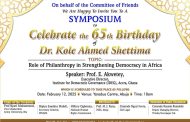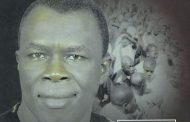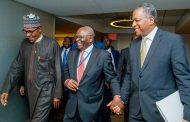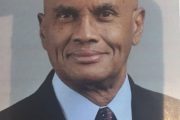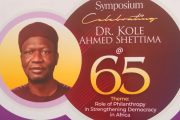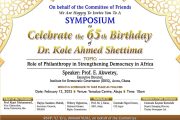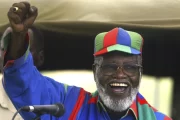By Adagbo Onoja
The 80th birthday of Cardinal Emeritus John Onaiyekan has come and gone but the reflection on it has no deadline. The starting point here is that Nigeria is in search of leadership. By leadership, I am not referring to presidents, governors, legislators and all that. Those are political office holders, some of whom may transform into leaders, many of whom might never be heard again after the fact of office. Rather I am referring to individuals, institutions and practices which have become embodiment of the Nigerian idea and serve as a symbolic frame of reference for even those who have probably never met them.
In what ways does my claim apply to Onaiyekan? I will list four of them.
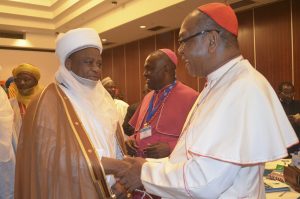
The Onaiyekan statement in the management of religious diversity at the religious level in Nigeria
We are told by Prof Jibrin Ibrahim in a very recent column of his experience of management of diversity at Mount St Michael’s Secondary School, Aliade, the secondary school he (Onaiyekan) attended, an experience which he has embodied till today, culminating in his being able to establish a subsisting protocol for managing inter-religious diversity at the national level. So, he is doing something like Mandela did: suing for negotiation with an opponent based on the advantage of farsightedness that defines leadership at a time when ANC combatants were angling for a fight to finish along racial lines. It is not easy to do this.
Two, he has been able to remain above scandals and unnecessary controversies. There can be no progress without controversies and conflicts because conflicts are productive except when not well managed. But it is not every conflict or controversies that are productive In Nigeria, it is an achievement to remain above unproductive controversies because much of what we fight each other are actually areas that call for cooperation.
Three, he has no corruption charges against him, be it as understand within the Church and outside of it. We would have heard if there were. What have we not read about all manner of ‘men of God’ in the media since the past three decades in particular.
Fourth is the closely connected but standalone dimension flowing from the first point: nobody can accuse him of hating the north or south, east or west just as none can or has accused him of reservations against any other if the identity binaries: youth versus the aged; men versus women; Christianity versus traditional religion.
The last binary needs elaboration. The first time the Cardinal Emeritus struck me was at a 2017 event in Abuja where he derided the unapologetic disposition of Christian zealots in burning the symbols of traditional religious practices. I was struck by the Onaiyekan person and his standpoint, coming after soul destroying stories of how the Christian revivalism movement back in my village completely conscientised the community to do away with mastery of the verbalisation of the genealogical chant. It was on the ground that it is unchristian.
I am not versed in inter-culturation to be able to make a categorical statement about whether the chant contradicts any aspects of Christianity. I doubt very much that it does because it is only a deeply meaningful farewell rite for the dead. I doubt that it has anything to do with idol worship. And even if it does, it is not in tandem with what I heard from Onaiyekan that afternoon at Sheraton. Since Onaiyekan is higher up there in the Catholic hierarchy than by the Catholic priests of Idoma origin who supervised the epistemicide, be it by epistemic authority, positions held, experience and age, I take it that something must have gone wrong somewhere, especially now that science has been defined from 1+1=2 to something more transcendental. It is doubtful if the accomplices of the epistemicide in that operation have ever listened to people like Onaiyekan. I do not worship idols but I am not a captive of the coloniality of being.
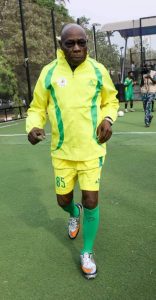
In 1999, Obasanjo became president without knowing everything that happened. He didn’t need to know because he was a consensus candidate. Why didn’t it occur to him that that is the way to the Igbo presidency instead of a roofoo – roofoo election?
I now make the overarching point in this piece which is that anyone with these four points to his credit comes closest to the one individual whose voice can have a nationally calming effect in the event of a meltdown. This is the strategic reading the title of this piece proclaims. No amount of modernity has reduced the need for such individuals, even in some of the most industrial of societies in the world. Unfortunately, the dynamics have not worked out well for Nigeria in that regard. Apart from General Abdulsalami Abubakar, the former Heads of State from whose rank such a voice could emerge is depleted in that direction. Obasanjo has the awareness and ability but he is still a partisan player. Beyond that, he has too many challengers all over the place.
Notwithstanding the difficulty of being a consensus person in a fairly complex Nigeria, Obasanjo’s case is rather unfortunate because that is the man Ibrahim Tahir described as a noble soldier who had been 419ned by politicians. Although the two of them were friends, the late Talban Bauchi was not someone who would make such an involving statement without unshakeable grounds. But the Obasanjo that unfolded didn’t quite fit the sense of a vulnerable soldier cheated by politicians. He was more of the soldier who wanted to undo the politicians only to find them quite stubborn and determined and he had to retreat without being the nationally calming voice. So, there is the inescapable paradox in Onaiyekan’s moment such an individual is emerging from a totally different quarter (the sphere of religion rather than traditional politics).
I would argue that this is the symbolism General Gowon went to bear witness to at Onaiyekan’s birthday. This is not to reduce the significance of Godswill Akpabio’s presence but the Senate Presidency is Akpabio’s key outing at that level. He may end up making a statement in leadership at the end of the day in tandem with his name – Godswill – but that is still evolving. His presence is, therefore, unlike General Gowon’s, who, when properly deconstructed, is the father of the nation, not Lugard. The Nigeria that Lugard fathered expired with the Biafran challenge to the state. To the extent that the Nigeria that came after that is the handwork of Gowon’s leadership, it is no longer the Lugardian Nigeria.
The expectation is that this qualitatively new Nigeria will be further elevated when the last post-conflict item there is accomplished but through a thick consensus (another 1999) that can close a painful chapter in the most remarkably Nigerian way. Nigeria did it before and can do it again.
We should all pray that the few Onaiyekans in Nigeria will know how to pull together in making that happen. Why not? After all, the Michaelite who regaled me with stories of the solemnity of the Onaiyekan birthday said it was as if God was coming down personally at the event. In any case, at a time 80 year old persons have siezed the centre stage across the world, it can be said that Onaiyekan is just about to unfold on Nigeria. May God bless Nigeria!




